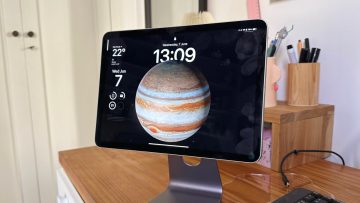Earlier this week, Qualcomm scored something of a significant legal victory when a court in Germany found that certain iPhone models with Intel modems infringed upon Qualcomm patents. Consequently, Apple opted to stop selling the iPhone 7 and iPhone 8 at its 15 retail store across the country as the company prepares to appeal the ruling.
The infringing technology in question centers on iPhones with Intel modems that contain a component from a US-based company called Qorvo. The component at issue helps preserve battery power while a device is in the midst of sending and receiving data.
In light of all that, word has since surfaced that Qualcomm managed to secure a favorable ruling because it was unwilling to keep information about Qorvo’s chip design confidential. As a result, Apple — which didn’t want sensitive information about its own phones to land in the lap of Qualcomm engineers — wasn’t able to fully offer up a defense against Qualcomm’s patent assertions.
Here, while Apple was provided the opportunity to defend itself at a hearing, the court was deprived of key evidence—the schematics of the chip alleged to infringe, and the testimony of the designer of that chip. And the court wasn’t deprived of this evidence because Apple didn’t want to present it, or because the chip designer (Qorvo) was unwilling to allow it to be presented. The schematics and testimony were used in a U.S. International Trade Commission (ITC) case filed by Qualcomm.
In fact, the U.S. ITC, with access to exactly that evidence and testimony, found that the U.S. counterpart patent was not infringed. That was in September.
After that happened, Qualcomm’s European counsel apparently chose not to agree to hold that evidence confidential—even though Qualcomm’s U.S. counsel, from the same firm, had agreed to such conditions. And because they wouldn’t agree to prevent others—particularly Qualcomm’s engineers, who design products that compete with Qorvo’s—from seeing that evidence, it couldn’t be presented to the German courts.
In effect, Qualcomm levied accusations against Apple that couldn’t adequately be refuted on account of Qualcomm’s own actions. Interestingly enough, the designer of Qorvo’s chip was in Germany at the time and was prepared to explain why the chip doesn’t actually infringe upon Qualcomm’s asserted patents. He was never afforded that opportunity and, as a result, the court in Germany ultimately handed down a decision without all of the pertinent evidence at their disposal.








